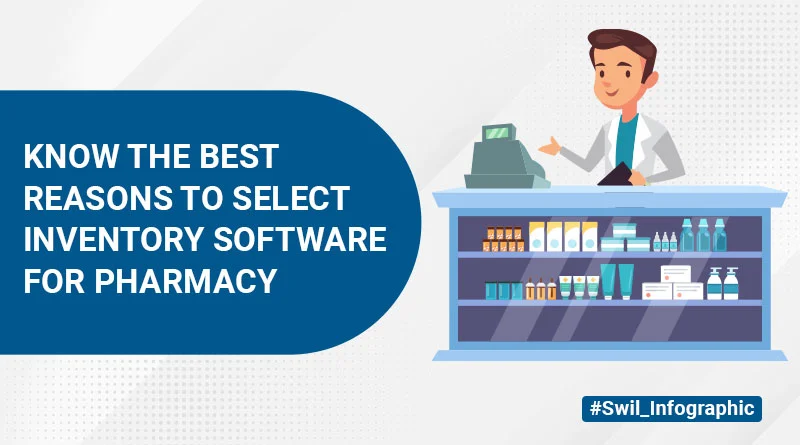Introduction
Digital transformation has affected consumer satisfaction and experience across all industries. Digital transformation is the integration of advanced technology and digital solutions. This integration happens in all areas of your business. It increases their efficiency and value.
The main goal of digital transformation is to use the latest technology to replace old processes with the latest. Spending on digital transformation has already exceeded $ 1.3 trillion worldwide. And it is growing at a skyrocketing 12.4% year-on – year. Adopting digital transformation is no longer an option in almost every industry. The healthcare industry is no exception.
We hope you’ll know that digital transformation in healthcare has great potential. It can streamline operational processes. It also improves the patient experience while reducing costs. This article describes in depth everything you need to know about digital transformation. This includes meaning, key challenges, and their solutions.
This article describes the role of emerging technologies in digital healthcare transformation and what it takes to develop viable healthcare technology solutions.
Article Content-
- What is digital transformation in healthcare?
- Why is digital transformation in healthcare essential?
- Trends in digital transformation in healthcare
- What are the benefits of digital transformation in healthcare?
- Challenges in digital transformation in the healthcare industry
- How SWIL helps you in your healthcare digital transformation process
- Wrapping it up
What is digital transformation in healthcare?

Digital transformation in healthcare focuses on a patient-centric approach. This helps healthcare providers streamline the operations of your business. It focuses on what patients need, building loyalty and trust. It provides a better user experience. It is worth collecting and extracting the data provided by digital communications. Healthcare providers analyze new ways to add value by building loyalty and trust. This is done by understanding the needs and behaviors of consumers. As a healthcare provider, keeping up with digital transformation in healthcare can be a challenge. Choosing the technology to invest in can be difficult for healthcare leaders. Adapting to the digital age means avoiding outdated business processes. It is believed that technical turmoil has meaningful consequences.
Why is digital transformation in healthcare essential?

Digital transformation is the latest trend in healthcare where people use digital assets to carry out daily tasks. It is the process of adopting digital technology in all aspects of the healthcare business. This includes payer operations, provider operations, and member interactions.
This is a technical change that enables us to increase business agility. It also improves operational excellence. Also enhances the patient experience. Driven by the need for value – based care, the healthcare industry is experiencing digital transformation. Digital transformation aims to have a significant positive impact on the health and quality of life of our members.
Digitization helps you to:
- Improve customer experience by enabling a personalized healthcare experience.
- It is possible with integrated patient access and clinical information sharing.
- Full insight into cost-effectiveness and results.
- Real-time access to relevant patient and medical information. It is done at the time of care for immediate analysis and decision making .
- Keep customers and enable healthcare plans to expand the market.
Trends in digital transformation in healthcare

The main digital transformation trends are:
Internet of Things, Remote Health Monitoring, Telehealth
Exchange data between different apps or devices to connect patients and providers. Devices such as health monitoring devices, wearables such as Fitbit. This is useful for real time tracking of vital statistics and medical information. Reduce waiting times in hospital rooms. It helps track the availability and accessibility of hospital facilities.
Cloud Integration
Most businesses are looking forward to modernizing their legacy platforms. They tend to migrate to the cloud to realize their benefits. The cloud enables the secure storage and exchange of data. This is a medical need for the healthcare industry.
Artificial and Machine Learning
Digitization enables AI and advanced analytics to help perform analytics. This includes predictive analytics, telemedicine, precision healthcare, and artificial health analytics. Use structured data to help build effective analytical models. This will help the industry move to preventive care.
What are the benefits of digital transformation in healthcare?

Digital transformation brings several benefits to patients with the help of digital healthcare solutions. Let’s check them out below:
Cost reduction
Digital transformation allows healthcare organizations to provide cost – effective services. It eliminates unnecessary spending on traditional healthcare services by automating processes.
Optimized workflow
Digital transformation can replace paperwork with digital records. It reduces the time spent assessing patients. It provides easier and streamlined access to patient records.
Allows improved interaction with patients
Digital transformation enables improved and more effective online interaction with patients. This is done with the help of video calls and chats.
Real-time Alerts
It is one of the key examples of big data analytics in the healthcare industry. Healthcare units use clinical decision support software to analyze onsite medical data. It is also used to advise healthcare professionals to enable informed decision making. Wearable devices are used to collect patient health data and send it to the cloud.
For example, if a patient’s heart rate increases, the system sends a real-time notification to the doctor. Doctors can take action to lower their heart rate and reach the patient. These devices generate large amounts of data. Implementing intelligence can help healthcare professionals make important decisions and receive real-time alerts.
Prevent human error
Professionals often tend to send different medicines or prescribe the wrong medicine. Big data can be used to reduce such errors by analyzing prescription drug and user data. Prescription data collected from various healthcare professionals. It can be monitored using big data health tools. This software helps doctors identify prescribing mistakes and save many lives.
Secure electronic medical record database
Digital transformation in healthcare allows you to create a secure database to encrypt. It helps to store, and access your patient’s personal healthcare records at any time. Also share them with healthcare professionals and labs as needed.
More effective internal communication
The entire healthcare industry relies on communication to provide adequate care to patients. Digital transformation also enables more smooth communication between all involved parties.
Better time management
Digital transformation can be a significant time investment in the healthcare industry. This allows anytime access to patient records and real-time adjustments, saving many lives.
Improved medical services
The healthcare industry is patient – centric. It is a must to use advanced techniques for accurate diagnosis and treatment. Digital transformation enables the integration of a variety of technologies. This enables healthcare professionals to provide more effective personalized treatments.
Automate regular processes
AI technology automates repetitive healthcare industry tasks. This enables managers to tackle higher-level tasks. Staff can provide better patient service by automating tasks such as data migration to billing. These softwares can be integrated with existing healthcare systems. It eliminates operational costs and saves time.
Challenges in digital transformation in the healthcare industry

Regulatory Compliance
Regulations can limit technological progress, especially in highly regulated industries such as healthcare. The tighter the regulations, the harder it is to take advantage of technological advances.
Cost factor
Many companies in the healthcare sector are avoiding their digital transformation plans. This is all due to the cost factor. These companies are fixated on ROI. They ignore the value propositions that they have to offer. It is true that digital transformation in healthcare asks investment in technology.
It also requires partnerships with software development companies. However, digital transformation can also offer greater scalability. It generates more profit and revenue compared to traditional ways. There are several ways to reduce costs to address digital transformation in healthcare.
Resistance to change
The majority of medical professionals acknowledge that they have very busy work schedules. It usually means that they do not have enough time to participate in learning how to use new softwares. However, they spend hours on a regular basis in hospital management tasks that can be easily automated with digital transformation. Digital transformation is about changing the way the healthcare industry thinks and works. Therefore, it is important to combat resistance to changes in thinking before embarking on a journey of digital transformation.
Healthcare Industry Complexity
The healthcare ecosystem is far more complex than any other industry. It consists of a number of stakeholders, factors, and conflicting interests, including security, laws, customer needs, privacy, employee needs, and costs.
Dynamic Customer Expectations
Customers want the convenience and control of healthcare. In today’s digital market, they really expect it. At the same time, they demand more control over data and privacy.
Technically Skillset
As mentioned earlier, many companies consider their employees to be more digitally mature than the company itself. However, a closer look at this topic reveals a more subtle issue. As health care becomes digital, the need for professional digital skills increases.
Organization Culture
To survive in the digital age, corporate culture needs to be more digital, more innovative, and more open to change. However, like any change project, the transformation initiative is a complex and long-term issue.
How SWIL helps you in your healthcare digital transformation process

SWIL provides smart business software solutions for healthcare companies such as pharmacies. Our retail pharmacy software has specialized features which increase the agility of your business. It increases your overall productivity. It gives the company a digital platform that makes your pharmacy more trendy and advanced. SWIL benefits pharma healthcare businesses in many ways. It streamlines routine business tasks. SWIL is integrated with a robust point-of-sale system used to process customer transactions, receive payments, and update retail store inventory levels. The software allows pharmacy owners to view medical reports, prescription sales, patient credit details and process bills from day one. It also provides customers with a complete retail solution that provides enterprises with more profitable business opportunities. If you are looking for software to be used in pharmacies, SWIL is the ultimate solution.
Wrapping it up
Digital transformation is an ongoing process. New trends are emerging every day in the healthcare industry. To drive digital transformation in healthcare, we must go beyond the technology needed to drive innovation.








